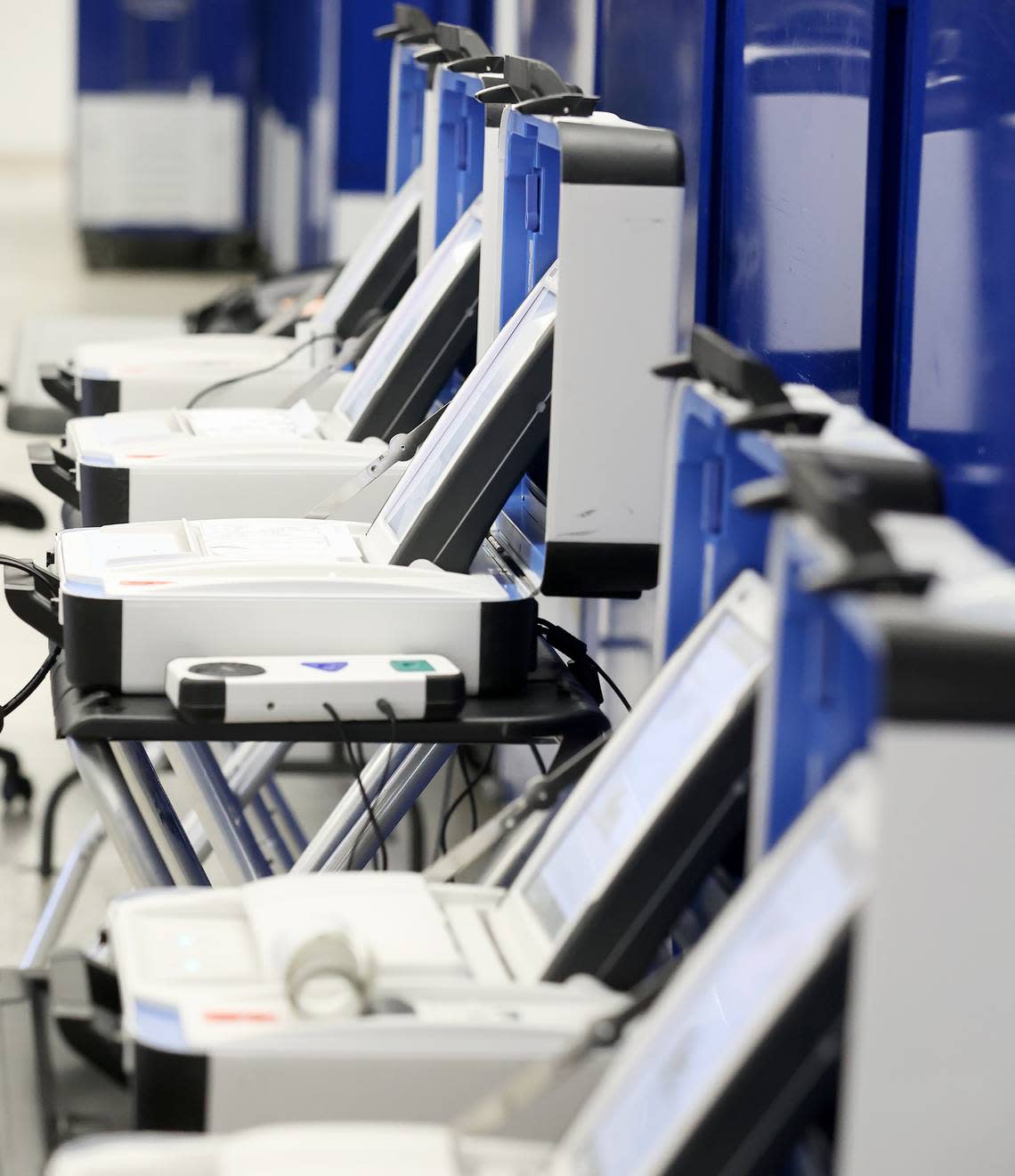New Texas law puts Tarrant County Republican primary in ‘jeopardy,’ GOP leader says

Tarrant County Republicans say they might not be able to hold a primary in March if a new law related to countywide voting doesn’t change.
The way the bill is written effectively bars Tarrant and other counties with countywide voting from combining precincts’ voting locations the way they have in the past, changing the calculation for how many polling places they’re required to have. In Tarrant County, it would mean twice as many polling places for the March primaries, according to the county’s election administrator and Republican Party chair.
That amounts to 374 polling places for the March primaries, compared to about 190 Election Day voting locations in recent years, said Tarrant County Election Administrator Clint Ludwig. That number doubles again when you consider that Tarrant County’s Republican and Democratic parties do not hold a joint primary.
“By going to 347, I’m essentially having to equip and staff... 694 locations,” Ludwig said. “We don’t have the equipment and the vendor couldn’t get us enough equipment in time for the primaries, even if we wanted to procure it.”
Getting the necessary equipment would cost the county an estimated $8 million, he said.
This could be avoided if Republicans and Democrats held a joint primary, but Republicans said that is not an option. A joint primary would cost the county an about $200,000 Ludwig said.
“We don’t want people that are not on our team involved in our elections,” said Tarrant County Republican Party Chair Bo French. “These are our elections. We’re going to handle them ourselves.
He raised concerns with potential election fraud, though there’s been no evidence of widespread fraud in the county. An audit of the 2020 presidential election in Tarrant County found that the county ran a quality and transparent election.
Tarrant County Democratic Party Chair Crystal Gayden declined an interview request, but noted in a text that Republicans declined a joint primary.
Staffing and equipping 347 locations would be a challenge but possible, Ludwig said.
In a letter to Texas Gov. Greg Abbott and signed by Texas GOP Chair Matt Rinaldi, French asked for a legislative fix and said the law puts the primary election in “jeopardy.” He noted that if the issues are not remedied by the Legislature, the local party may have to defy state law or sue to overturn it.
“This apparently inadvertent change, if implemented, would impose unreasonable expenses for election equipment, supplies, and personnel, and may even make it impossible for Tarrant County and the Tarrant County Republican Party to successfully carry out a primary election in 2024,” the letter reads.
Recent actions by the #txlege appear to have inadvertently diminished our ability to run the Republican primary election in Tarrant County.
Today I sent a letter to @GovAbbott asking for his assistance in ensuring we are able to run a legal and fair election. (@DrewSpringer) pic.twitter.com/OTCLxptC4n— Bo French (@Bo_French_TX) November 6, 2023
State Sen. Drew Springer, a Republican from Muenster, authored the bill and has filed a one to address the problem, but time lapsed in the special session that ended Tuesday. He plans to refile the bill in a new special session that is expected this month and will ask Abbott to add the measure to the agenda, Springer said.
The goal of the legislation was to help larger precincts that didn’t have a facility suitable for a polling place, said Springer. But changes to the bill during the drafting and House floor amendment process have led to some “unforeseen issues,” Springer said in a statement responding to written questions.
Concerns have also been raised in other counties, according to New York-based Votebeat, which covers election and voting issues. More than 90 counties are part of the countywide voting program, including Tarrant County.
“The bill was drafted based on guidance from the Secretary of State’s Election Division, and it was suggested that certain language be removed for clarity,” Springer said. ”This, along with an amendment that was later added in the House of Representatives, has led to unforeseen issues related to redistricting and confusion between the terms ‘consolidation’ and ‘combining’ of precincts.”
The amendment causing issues aimed to prevent poll closures in counties that use countywide voting, said Rep. John Bucy, its author and an Austin Democrat.
Katya Ehresman, the voting rights program manager for Common Cause Texas, stressed that more voting isn’t a problem. Having more polling places in counties that are growing should always be a goal, she said. The real issue that should be addressed is the chronic underfunding of election system, she said.
“The biggest issue is election administration and making sure that we can do that well funded and equitably, and that’s not something that Senate Bill 924 created an issue with,” Ehresman said. “That’s something that the state legislature has continued to avoid addressing.”

